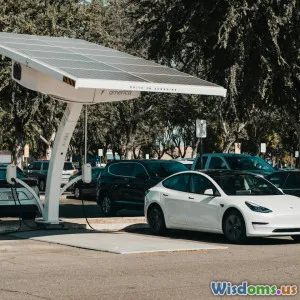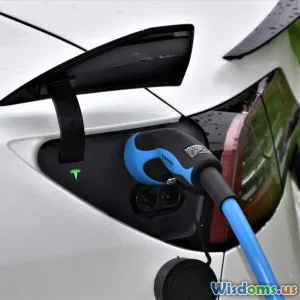
The Future of Electric Vehicle Technology
5 min read Exploring the advancements and innovations shaping the future of electric vehicles. (0 Reviews)
The Future of Electric Vehicle Technology
As the world shifts towards a greener future, electric vehicles (EVs) are at the forefront of this revolution. With advancements in technology, changing consumer preferences, and supportive governmental policies, the landscape of electric vehicles is rapidly evolving. This article delves into the future of electric vehicle technology, examining the innovations, challenges, and the overall impact on the automotive industry.
Current State of Electric Vehicles
The global electric vehicle market has witnessed exponential growth over the past decade. According to the International Energy Agency (IEA), the stock of electric cars reached over 10 million in 2020, a figure that continues to rise. Major automakers are investing billions in electric vehicle development, with many pledging to transition entirely to electric or hybrid models within the next decade.
Advancements in Battery Technology
One of the most significant factors influencing the future of electric vehicles is battery technology. The current lithium-ion batteries, while effective, are often criticized for their range limitations and environmental impact. However, researchers are exploring alternatives, such as:
- Solid-State Batteries: Offering higher energy density and improved safety, solid-state batteries could potentially double the range of current EVs.
- Lithium-Sulfur Batteries: These batteries promise a greater energy capacity and lower costs, making them a viable option for mass production.
- Recycling Technologies: As the demand for batteries grows, so does the need for sustainable recycling methods to minimize waste and recover valuable materials.
Enhanced Charging Infrastructure
For electric vehicles to reach their full potential, a robust charging infrastructure is crucial. The future will see:
- Fast Charging Stations: Innovations in charging technology will reduce the time it takes to charge an EV significantly, making them more convenient for users.
- Wireless Charging: This technology allows for charging without the need for physical connection, paving the way for more seamless usage.
- Vehicle-to-Grid Technology: This system enables EVs to return energy to the grid, helping to balance supply and demand while providing additional income for EV owners.
Autonomous and Connected Vehicles
The integration of electric and autonomous vehicle technology is another exciting frontier. Self-driving EVs could potentially revolutionize urban transportation, leading to:
- Reduced Traffic Congestion: With optimized routes and driving patterns, autonomous EVs can alleviate traffic issues.
- Enhanced Safety: Connected vehicles can communicate with each other and infrastructure, reducing the likelihood of accidents.
- Shared Mobility Solutions: Electric autonomous vehicles could facilitate ride-sharing services, further decreasing the number of vehicles on the road.
Environmental Impact and Sustainability
While electric vehicles are often viewed as a solution to reduce greenhouse gas emissions, their environmental impact must be considered holistically. Issues related to battery production, energy sourcing, and end-of-life disposal need to be addressed. The future of electric vehicle technology must prioritize:
- Renewable Energy: Charging EVs using renewable sources will maximize their environmental benefits.
- Sustainable Manufacturing: Auto manufacturers are increasingly adopting sustainable practices in their production processes.
- Circular Economy: Implementing systems for reuse and recycling of EV components can minimize waste and promote sustainability.
Conclusion
The future of electric vehicle technology is bright, with numerous advancements on the horizon. As battery technology evolves, charging infrastructure expands, and autonomous capabilities develop, electric vehicles will become more accessible and efficient. However, addressing sustainability challenges will be vital to ensure that the transition to electric vehicles contributes positively to our planet. With the right investments and innovations, the automotive industry can pave the way for a cleaner, greener future.
Rate the Post
User Reviews
Popular Posts



















